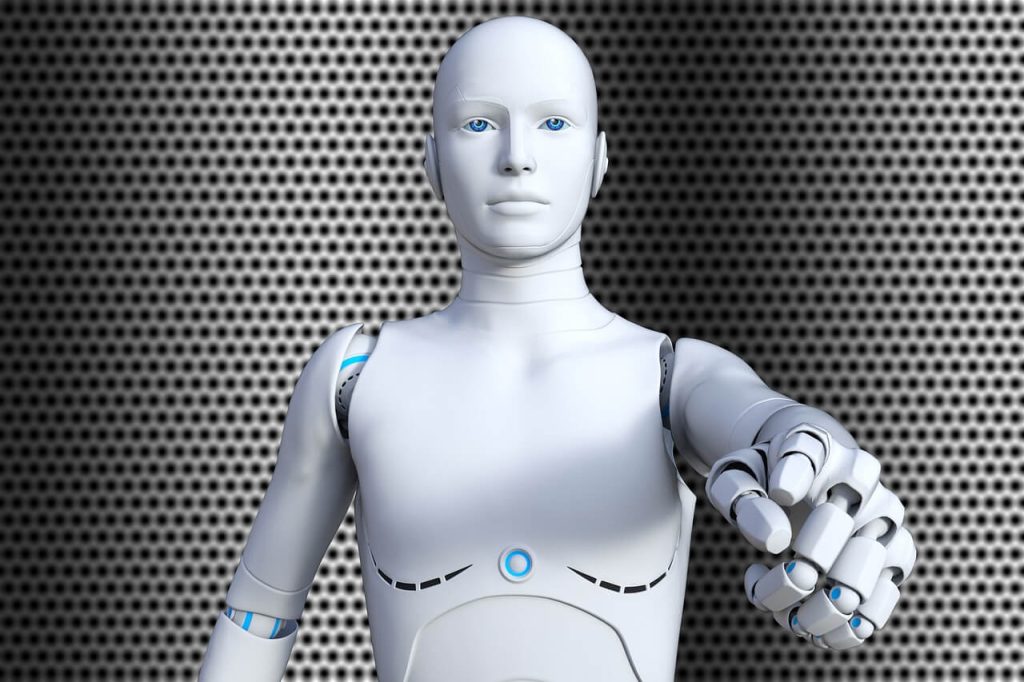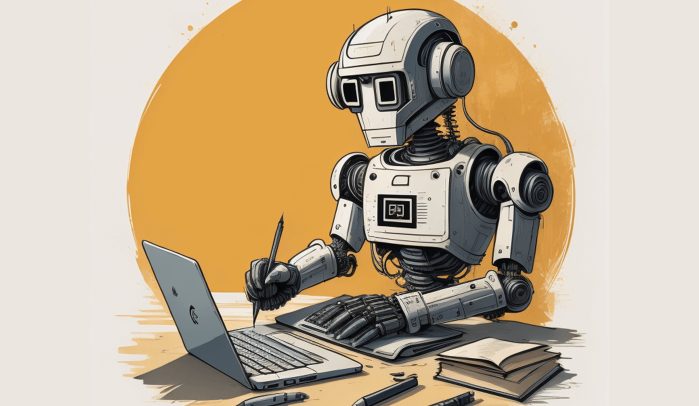UPDATED OCTOBER 22, 2025
In 2023, AI art was disturbing
I originally wrote this article in July 2023 and illustrated it with AI art. Can you tell?
My text prompt for the header image was ‘Robot writer writing’ — because seemingly it didn’t understand ‘AI writer writing’.
And it came up with this: a robot writing on a laptop keyboard with a pencil. For any other post this wouldn’t have been usable, but for this it was perfect.
While I’m updating the information on AI writers, I’m leaving the AI art exactly as it was. For posterity.
AI writers were just as bad
AI has always been marketed as something that will do everything a copywriter does, but faster, cheaper and without too much prompting. But it’s never been the whole truth.
While ChatGPT might talk like a human, it still can’t write like one — and your audience can often tell the difference.
Did you see I used an em dash just there?
Am I even writing this?*
*I am.
Notable AI copywriting risks
If you’re using AI to write for you without any moderation, there are still risks involved.
Some of these examples come from my own experiences with AI, but many come from the horse’s mouth: ChatGPT itself. Neigh way! Yes way!
AI lacks the human touch
Well, duh, obviously — because it’s not human!
AI will never have a human experience or opinion of its own to share. It can only regurgitate the experiences and opinions of actual humans. That’s actually quite sad… for the AI. But what does it mean for your copy?
As ChatGPT tells me, AI will struggle to infuse your copy with human experience, emotions, creativity and intuition. It doesn’t understand human values and isn’t always capable of capturing or conveying emotions effectively.
AI may mimic emotion, but truly human-driven authenticity, lived experience, intuitive judgement are still areas where human writers excel.
ChatGPT, 2025
Yes, ChatGPT, you bet those are “still areas where human writers excel”. Because how could you ever compete with them?
Emotion is incredibly important if you want to sell. Harvard Business School professor, Gerald Zaltman says that 95 percent of our purchase decision-making takes place in the subconscious mind, which means it’s more emotional than logical.
AI can’t tap into those emotions, so it won’t give you the selling power a human writer will. And it won’t make your copy feel personal, like a human writer will. Which means it won’t build the strong customer connections and relationships your business needs.
AI doesn’t research well
I’ve yet to find an AI writer that can research properly. It can’t recognise a quality source from a questionable one and when it can’t find the information it needs, it even makes stuff up.

AI tools continue to suffer from “hallucinations”, weak source‐validation, and generative risks, so human oversight is absolutely needed.
ChatGPT, 2025
ChatGPT is pulling its information from the internet now, but you should still be wary.
Even if it gives you its sources, you need to check them to make sure they’re valid, credible and current. I’ve heard enough stories from people who found its source links questionable to know this is a flaw.
ChatGPT confirms this:
[Using AI for research] remains a critical caution — many AI writing tools still cannot reliably validate sources or guarantee accuracy.
Chat GPT, 2025
What ChatGPT doesn’t say is that when an AI is using wrong information, everything it writes, based on that information, will also be wrong. So, be warned.
AI is still not a master of language
Our language is complex. It’s full of nuance and subtlety — and context is key. Your human audience will understand this. AI is getting better, but you still shouldn’t trust it fully.
Modern AI is much better with nuance and idiom than before, but still falls short in deep cultural-context, irony, subtlety, tone shifts. So needs nuance: “better, but still not flawless”.
ChatGPT, 2025
So what does that mean for your copy?
It means AI might not understand the significance or implications of what it’s writing. Its messaging might be inaccurate or fail to resonate with your audience. And this lack of understanding could make your copy sound unnatural and confusing.
AI lacks industry-specific expertise
In 2023, ChatGPT told me that one of its knowledge gaps was industry-specific expertise — and that this could lead to generic or misleading content.
In 2025, it seems this is still a blind spot.
For deep niche or highly technical domains, human subject-matter expertise remains important. AI can aid, but relying on it alone is risky.
ChatGPT, 2025
Industry expertise is incredibly valuable when you’re creating content. People will be reading your content to learn from you, because you know more than they do.
But AI doesn’t know what you know. It’s not capable of researching what you know. And it can only write what you know if you tell it exactly what to write.
I always encourage my clients to contribute to the content I’m writing for them, if they can. Their insight and understanding is beyond what I can research. It gives their content depth and makes it more unique.
AI isn’t always adaptable
AI still can’t think for itself and relies on a series of algorithms to tell it what to do. This means it might struggle adapting to new trends, changes in the market, evolving customer preferences or unexpected scenarios.
Some tools now adapt via retrieval-augmented models, or updated training/fine-tuning. But adaptation is still less flexible/more resource-intensive than human agility.
ChatGPT, 2025
It does have the internet to draw from now, so it might seem like it’s more on top of things.
But you still need to check its output.
AI lacks originality and creativity
In 2023, I wrote that AI relies heavily on data and examples that already exist. That everything it ‘creates’ is regurgitated from someone else’s work and that none of it is original or unique.

Judging by ChatGPT’s response in 2025, my original summation very much still stands.
While many outputs can be generic, high-quality prompt engineering, fine-tuning and human revision can yield highly creative/unique work. So the skyline has improved, though the danger remains.
ChatGPT, 2025
In other words… if you use high-quality prompts, if you fine-tune your prompts, and if you revise everything it’s produced, you might end up with something vaguely creative and unique. But it would never have produced that without your input, so…
And if you don’t give it that level of input?
At the moment, much of the original work AI draws from is created by humans. So it’s effectively plagiarising human content creators.
But what if AI content becomes prevalent and it starts to regurgitate its own work? Will we have an internet filled with copycat content and inevitable misinformation?
And, if so, do you really want to be contributing to that?
AI can’t understand feedback
The thought of giving AI feedback on what it’s written may not have even entered your head. I know it hadn’t occurred to me.
But ChatGPT tells me it may not understand or implement the feedback you might give it. So if — sorry, when — it gets things wrong, you’ll either need to make the amendments yourself… or hire a human to do them.
AI doesn’t have human awareness, it doesn’t “learn” from feedback in the traditional sense in most user workflows (unless fine-tuned). So the human editor remains essential.
ChatGPT, 2025
Or you could cut out the AI all together and just hire a human to write the whole thing!
AI lacks cultural sensitivity and ethics
This was news to me. And it should be a concern for anyone who’s using AI to write about culturally sensitive issues.
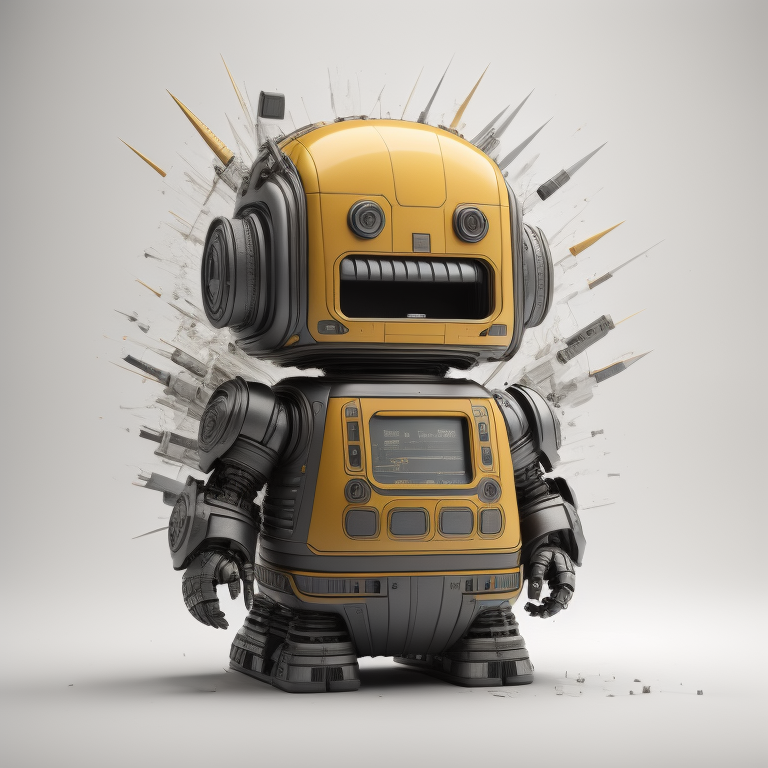
In 2023, ChatGPT told me that AI may inadvertently produce copy that’s culturally insensitive, offensive or inappropriate. And it may unintentionally cross ethical boundaries or violate privacy norms.
This could lead to public backlash, potential reputational damage, or even legal issues.
In 2025, it seems these concerns are still very much legitimate:
AI tools may inadvertently generate biased, insensitive, or legally risky content; ethical/cultural oversight remains extremely important.
ChatGPT, 2025
So it doesn’t mean to, but it might cause the public to get their pitchforks out, it could decimate your business, or even get you sued. How comforting.
AI can’t make strategic decisions
When crafting copy and content for your business, copywriters have to make strategic decisions to achieve the results you’re looking for. But AI writers still don’t have the human intelligence, judgement or experience to do this.
Strategy, judgement, brand positioning, long-term vision remain human strengths. AI may assist but doesn’t yet replace strategic human thinking.
ChatGPT, 2025
AI is learning, but it still lacks a broad understanding of the world and the abstract reasoning and common sense needed to make these decisions.
And they still don’t have the ability to use ethical or human-centred values in the decision-making process either. Good to know.
What does this mean for your copy?
Well, it probably won’t do what it’s supposed to or get the results you need. Because the AI doesn’t understand why it’s writing what it’s writing. This means it doesn’t write it with any particular strategy, objective or outcome in mind.
AI can’t replicate your brand voice
Your brand should have its own unique tone of voice. Having a distinctive voice helps to personify your brand and attract your ideal customers.
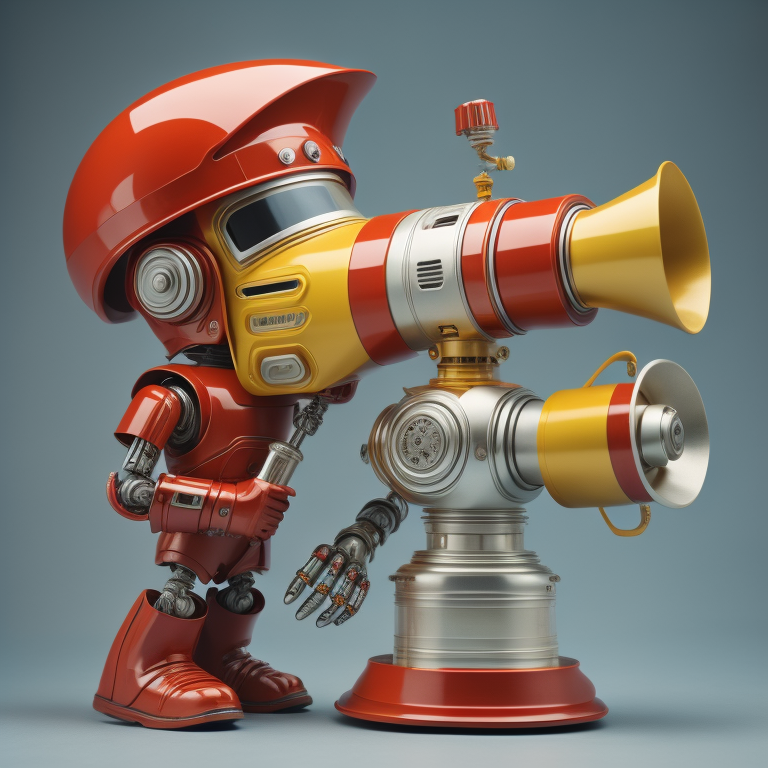
Human copywriters are chameleons when it comes to tone of voice and will change their style for each brand they write for. Some copywriters will even create brand voice guidelines for you, so that everyone who writes for your brand will sound consistent.
And AI?
Well, AI will produce copy that will make an effort to match your desired style or brand identity. But that won’t happen without with a lot of human involvement and oversight.
With good prompts, fine-tuning, and human editing, AI can approximate brand voice quite well; however, truly distinctive and deeply consistent voice still benefits significantly from human oversight.
ChatGPT, 2025
AI writing lacks authenticity
In 2025, ChatGPT tells me AI sounds much less robotic now.
But does it?
Even if it has lost the robotic feel — and that’s debatable — that doesn’t mean it sounds human.
I’ve seen AI-written content out in the wild and I could spot it at 20 paces. It wasn’t pleasant to read and it didn’t reflect well on the company that published it.
Was that because I’m a writer and I have higher standards?
Maybe.
Will your audience be more forgiving?
Who knows? But even if you think AI sounds human, it still doesn’t sound like you. And it’s you your ideal customers want to get to know when they read your copy.
Authenticity (in the sense of reflecting real human-story, brand narrative, lived voice) continues to be stronger when humans are involved.
ChatGPT, 2025
A human copywriter will make your copy sound like the best version of you — so it comes across as genuine.
AI lacks storytelling abilities
Even in a crowded market, a good brand story has the power to set you apart and help you build a loyal following.
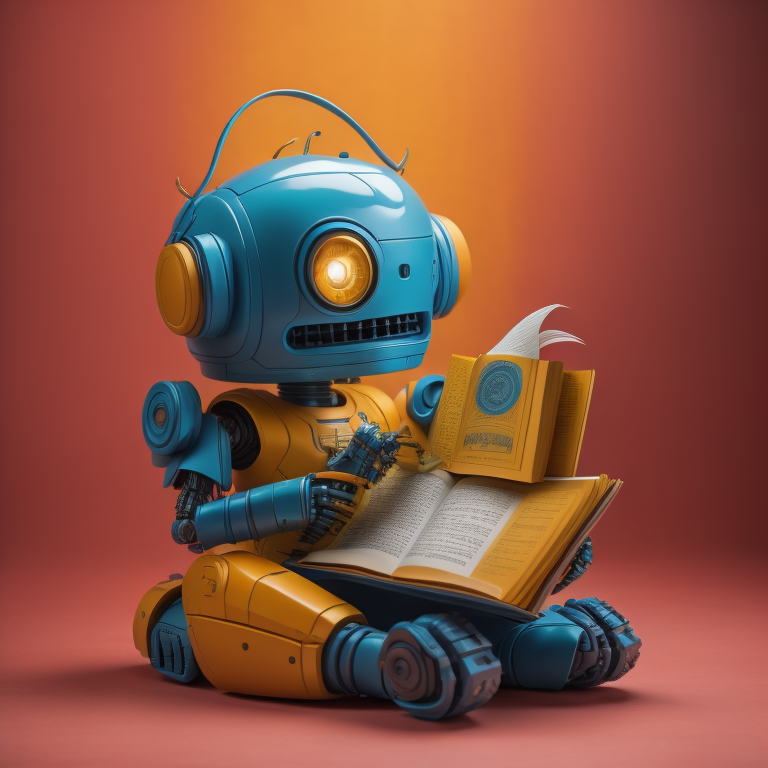
A human copywriter can do that for you. In fact, there are even copywriters who specialise in creating engaging and powerful brand stories.
And AI? Apparently, storytelling is yet another thing it struggles with, so don’t expect it to write a captivating brand story for you any time soon.
Storytelling remains a creative domain where humans lead. AI can help generate story-elements, but crafting a compelling, emotionally resonant brand story still benefits from human insight.
ChatGPT, 2025
AI makes unpredictable errors
Absolutely true. Even today, errors (facts, tone, logic, context) happen. Monitoring remains essential.
ChatGPT, 2025
Do I need to say more on that? No, I don’t think I do.
AI may plagiarise existing content
In 2023, ChatGPT told me that AI may unintentionally produce content that resembles existing works too closely, raising potential plagiarism concerns.
And X user, Chris Alvino, explained why. Chris is a computer scientist who’s spent over a decade studying and programming AI. In his X thread on all the things he hates about it. He said:
“The massive training sets required to train them cannot be obtained legally so they are stealing huge amounts of content w/o consent, all in the name of ‘innovation’.”
Chris Alvino, 2023
Today, AI has the whole of the internet to draw on. Improvements have been made, but the risk of plagiarism is still a serious issue for anyone using AI writers.
Plagiarism risk remains, and there are legal/data set concerns, but improvements in tooling (paraphrasing filters, detection) help mitigate some risk. The underlying issue of unclear training data/consent remains relevant.
ChatGPT, 2025
AI won’t work with you
Using AI is a one-way street: you command and AI delivers.
There’s no conversation. No collaboration. No sharing of expertise and ideas.
Human copywriters engage in conversation, challenge feedback, deeply understand the client context; AI lacks real collaboration skills. AI can be part of a workflow, but not a full collaborator in the human sense.
ChatGPT, 2025
Working with a human copywriter is a much more communicative process.
For example, we’ll:
- Talk to you to find out why you need the project
- Get to understand you, your business and your ideal customers
- Use our expertise to come up with creative ideas
- Explain the reasoning behind the copy we’ve written
- Challenge your feedback if we think it’s not going to work for you.
It’s safe to say you won’t get any of this from an AI writer — and your copy could suffer as a result.
AI can only work with human input
Without skilled prompting, domain knowledge, human direction and revision, AI output will generally under-perform. So human input remains indispensable.
ChatGPT, 2025
AI still needs a lot of human prompting and can only write what you tell it to.
The question is, do you know what to ask for?
Human copywriters spend much more of their time researching what to write than actually writing it. We’ll research your ideal customers and what they want, so we know our copy is delivering for them — and, in turn, delivering for you.
Without that in-depth research and understanding behind it, your copy will miss the mark and fail to achieve the results you need.
AI can’t work independently
After all the things I’ve covered in this article, this should come as no surprise.
AI needs a human moderator.
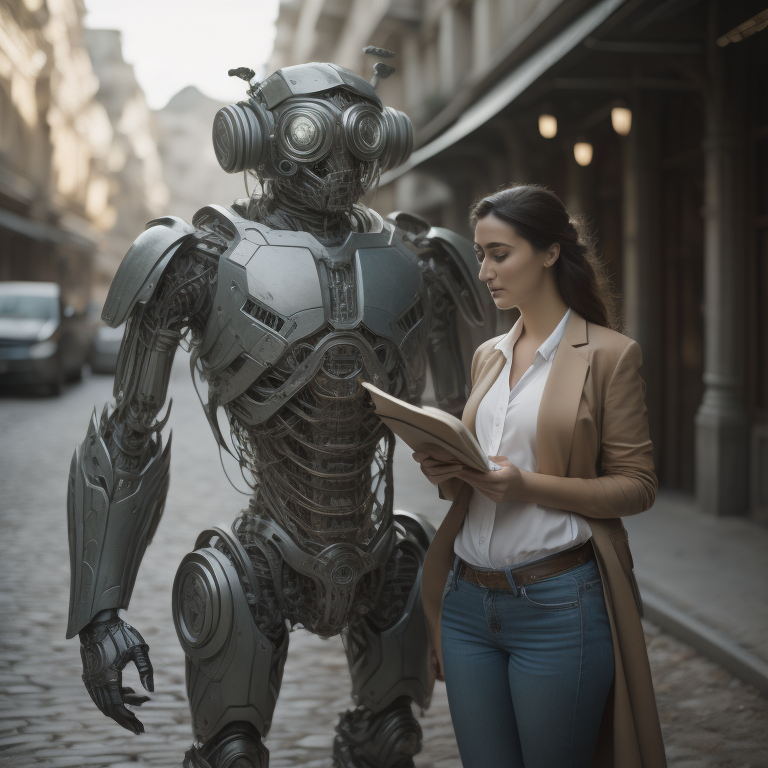
As ChatGPT says:
Autonomous AI copywriting (without human moderation) is risky. Human moderation, editing, brand fitting, fact-checking are essential.
ChatGPT, 2025
In other words, you can’t leave AI to its own devices and expect to get an accurate, non-plagiarised, on-brand, usable output.
The output will need humanising, fact-checking and rebranding in case it embarrasses you, destroys your business, or results in legal action.
19. AI can get you penalised by Google
When they discovered AI could write blog articles for them, some businesses went overboard. They published hundreds of unmoderated articles in super-quick time.
But they would soon come to regret this.
In March 2024, Google announced a clampdown on spammy and low-quality content. This was followed by its spam update in June 2024.
Following this update, these businesses had their websites clobbered by the algorithm. Some slipped down the rankings. Others disappeared from Google completely.
What is Google’s position on AI-written content?
Google has recognised that there can be value in AI-written content, so it hasn’t outlawed it completely. But it has introduced some ground rules.
The main one is, you can’t just publish whatever your AI produces — because it could be wrong.
Before you publish AI-written content, you should spend some time:
- Adding your own original material
- Moderating and fact-checking
- Humanising and rebranding
- Running plagiarism checks
- Proofreading and editing.
In other words, making the content as unique and valuable as you possibly can to give it the best possible chance of ranking — like a human copywriter would.
And that’s still the case today.
This remains timely and true. Search engines are increasingly sophisticated; publishing unmoderated/low-value AI-content remains risky.
ChatGPT. 2025
In conclusion
AI can string any old words together in a vaguely coherent sentence — but they may not be factual, effective or right for your brand. If that’s good enough for you, fill your boots. And I hope it works out for you — genuinely.
BUT — and you knew there’d be a but — what AI can’t do, is all the other stuff that will make your copy amazing, effective and original. Like…
Strategy
Devising your strategy involves looking at what you want to accomplish long-term and the tactics we’re going to use to achieve that for you.
Research
As any good copywriter will tell you, up to 80% of effective copywriting and content writing is research. Getting to know your industry, your brand, your competitors and your ideal customers to make sure your copy is hitting the mark.
Positioning
Positioning is working out where your brand sits in the market. Having established this, we can find ways to differentiate your brand, make it unique and give you a competitive advantage.
Creative ideas
Great copy is always preceded by great ideas and imagination. That might be creating a captivating brand story, deciding how your brand will sound or developing a creative and original ad campaign.
Do you see the value a human copywriter could bring to your business?
I mean, it will cost you a lot more than free and take a lot longer than a few seconds — but that time and money will be totally, totally worth it. And it will give your brand what no AI can: humanity. The ability to connect with your human audience on a human level.
I’m Jenny Lucas, a freelance copywriter and content writer based in Leicester, UK.
I make my living writing words that personify brands and connect them with their ideal customers.
And I specialise in SEO copy for websites and blog posts that rank organically on Google.
To find out more about my services and see samples of my work, head over to my main website.
To learn more about me or what it’s like to work with me, check out my blog
Or follow this link to get in touch and talk to me about your project.

You might also like…
